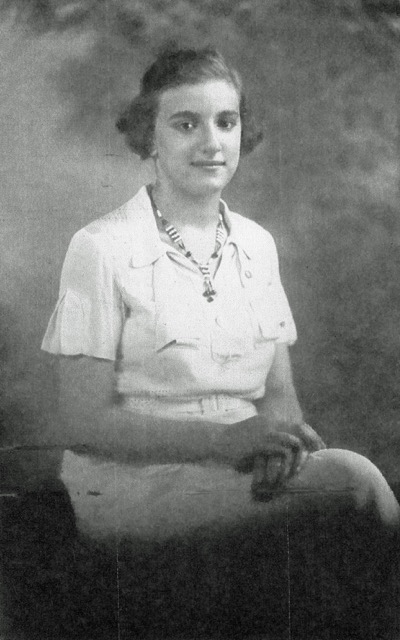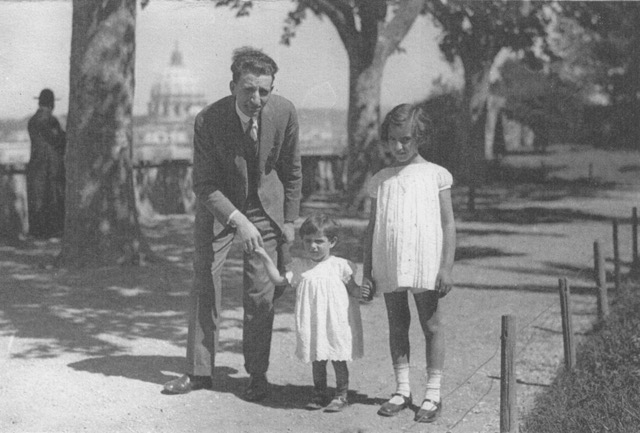
Dr. Olga Ragusa, the Da Ponte Professor Emeritus of Italian at Columbia University and cultural icon in Italian studies and publishing in America, died of natural causes on January 2 at her home in Manhattan.
She was born in Catania, Sicily, on February 11, 1922, to Andrea Ragusa, later a noted Italian publisher and bookseller in New York, and Anna Borchardt Weiskopf from Innsbruck.
Dr. Ragusa came to America as a child in 1932 with her parents and younger sister, Isa. In 1930, her father Andrea was hired by the Milan-based publishers Treves & Tumminelli to distribute the Enciclopedia Italiana Treccani in North and South America. He arrived in New York in 1931 and quickly realized that, in the aftermath of the 1929 crash, it was impossible to sell encyclopedias. However, instead of returning to Italy, he decided to settle in the city and purchased the bookstore on Bleecker Street that Sante Fortunato Vanni, also from Sicily, had opened in 1884.
The letters Andrea Ragusa wrote to his daughters during that year, encouraging them to study Italian and English and prepare for the new life, are testimony to his determination to maintain a link to his native Italy but to fully embrace his new country and culture. The Ragusas applied for naturalization very soon after their arrival.
Dr. Ragusa’s mother, Anna Borchardt Weiskopf, a native of Innsbruck met Andrea Ragusa while he was in Austria serving in the Italian army. She was an energetic and independent woman who encouraged her daughters to pursue their academic careers. A music lover, Anna brought the girls to the every opera she managed to get tickets for. Olga had a beautiful voice and loved to sing. Up to a certain age she contemplated becoming a professional singer.
Mozart librettist, the Venetian Lorenzo Da Ponte was the muse of the Ragusa home, the symbol in which the family’s different facets converged: Italy and Austria, poetry and music, publishing, selling and teaching, old Europe and the New World. Even without evidence, to the end of her days, Olga maintained that the small theater set up by Da Ponte to raise funds for what after his death would come become the first Metropolitan Opera on Broadway and 39th street, was located on West 12th Street in front of their home and bookstore. Testimony of her love for Lorenzo Da Ponte is a collection of essays, Lorenzo Da Ponte In American Perspective., published in 1996 by S.F. Vanni.

After receiving her B.A. from Hunter College in 1943 and her PhD from Columbia University in 1954, Olga Ragusa started teaching at Rutgers University as an instructor in German and French in 1946 – 1947, and then at Vassar College. In 1955 she became an assistant professor at Columbia and in 1979, she was appointed Da Ponte Professor of Italian. Shortly after, she became chair of the department, a position she held until 1992.
Dr. Ragusa worked closely with Giuseppe Prezzolini during his twenty years at Columbia University as professor of Italian and – until 1940 as director of Casa Italiana. Prezzolini was a central intellectual presence in her life. She dedicated extensive research to his work, often struggling to make sense of his ambiguous relation with the fascist regime and the controversies raised by Columbia’s president, Nicholas Murray Butler’s ties with Mussolini. Some of her research was published in the volume Giuseppe Prezzolini: The American Years 1929 – 1962. The Department of Italian and the Casa Italiana at Columbia University (with Paolo Bagnoli, 1994).
Upon the sudden death of her father in 1974 —to whom she later dedicated the volume Andrea Ragusa Editore-libraio italiano a New York dal 1931 al 1974 (2004)—she became co-owner with her sister, Isa, a professor of archeology at Princeton University, of the S.F. Vanni bookstore and publishing house.
Olga Ragusa wrote extensively on Italian literature nourishing generations of young scholars. She was among the first critics to introduced American readers to the19th and 20th century writers who shaped the language and national culture: Alessandro Manzoni, Giovanni Verga, Luigi Pirandello, Italo Calvino, Giuseppe Tomasi di Lampedusa, Umberto Eco and many others. From 1968 to 1984 she directed the journal Italica. She was a member of the editorial board of the European Women Writers Series. Her seminal volumes Mallarmé in Italy: Literary Influence and Critical Response (1957) and Narrative and Drama: Essays in Modern Italian Literature from Verga to Pasolini (1976) remain important references in the study of Italian literature in America.
She published her last Review Article in Italica, Vol 88, No. I, “Gennaro Sangiuliano, Giuseppe Prezzolini: L’anarchico conservatore. in the Spring 2011 issue.
In addition to her academic writings, Dr. Ragusa had a strong interest in reaching a broad public. Her Essential Italian Grammar (1960), Letture Facili, First Readings in Italian Literature (1990), and The Italian Cook Book based on the classic by Pellegrino Artusi (1945) have been for many Americans a popular entryway to the culture of Italy.
In the last years of her life she welcomed Centro Primo Levi to re-open the S.F. VANNI bookstore , bringing it back to life through programs and publishing. The brief experience generated national and international interest in the history of Vanni and Andrea Ragusa. When the curators of her estate decided to close down the bookstore that she and her sister had always wanted to preserve, Olga Ragusa donated what remained of the book collection and Vanni’s papers to the Scuola d’Italia Guglielmo Marconi which is in the process of setting up a library in the name of the Ragusa family.
The building on 12th street will house the Olga and Isa Ragusa Foundation for the Humanities whose president is Prof. Andrea Ciccarelli of Indiana University.











